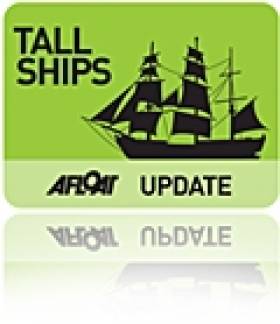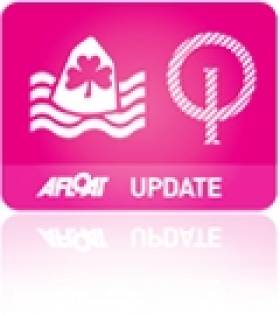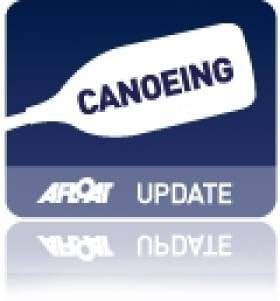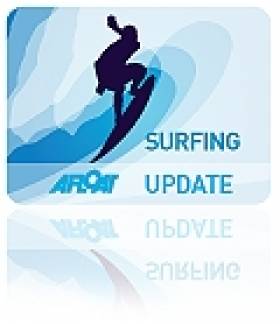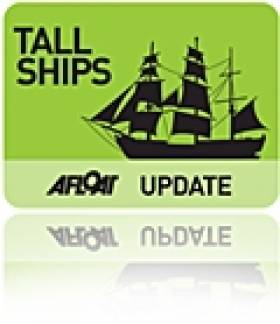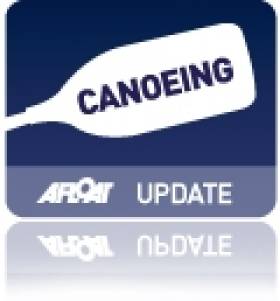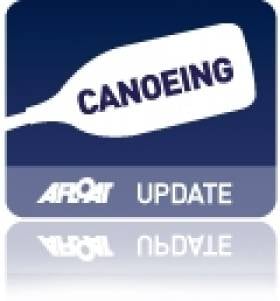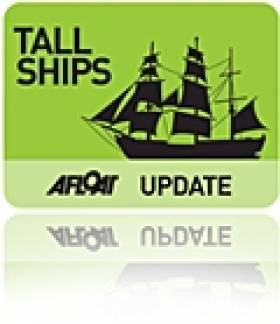Displaying items by tag: training
Sail Training Int Appoints New CEO
#TALL SHIPS – Sail Training International has appointed a new Chief Executive. He is Peter Cardy, Chief Executive of the charity Aquaterra and a former Chief Executive of the UK Maritime and Coastguard Agency (MCA). He joins the STI team at its offices in Gosport, England, this month.
Peter has an MSc in Social Policy and a BA in Social Theory and Politics. His career began in adult education and then moved into general management. He has been the Chief Executive of several major charities, and in his current assignment with Aquaterra he has a staff of 350 and runs a budget of £14million. His career has also given him international experience, and current volunteer appointments include: Patron of the Sea Change Sailing Trust, a member of the RYA Government Affairs Committee, and Visiting Fellow at the Cass Business School, City University (London).
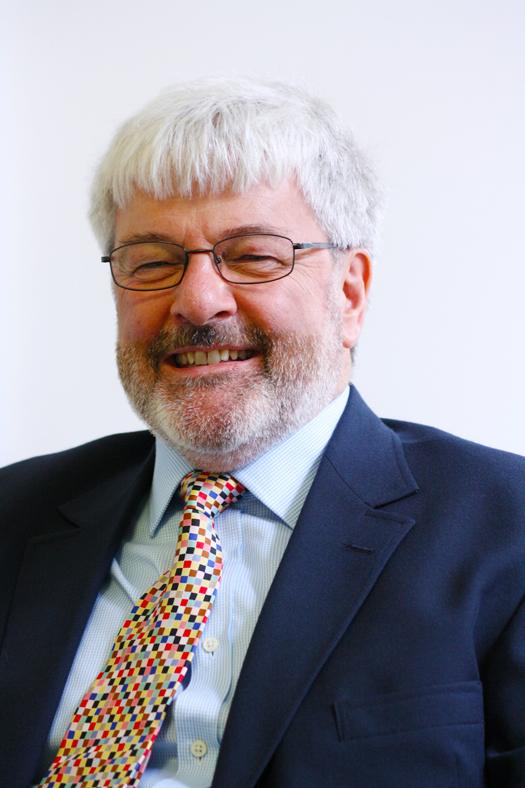
Peter Cardy is the new Chief Executive of Sail Training International
Peter's first sail training experience was at the age of 15, since when he has undertaken countless voyages on sail training vessels of all sizes. He has been a volunteer crew on a number of vessels and sails regularly with the Jubilee Sailing Trust as Watch Leader.
He has helped Sail Training International in recent years with advice on regulatory issues and other assistance. In early 2010, while Chief Executive of the MCA, he facilitated and joint-hosted with Sail Training International a reception for Flag State Regulators at the headquarters of the International Maritime Organisation.
"Peter is clearly uniquely well qualified to manage Sail Training International as our Chief Executive and help lead the organisation to further success," says Nigel Rowe, STI's President and Chairman. "He is well known to us, he is an experienced sail trainer, and he has considerable expertise in senior management roles in the charity sector. He will make a significant contribution to our work."
"I have always admired Sail Training International for its diverse activities in developing and promoting sail training around the world and for what it has achieved over the past decade," says Peter Cardy. "Sail training was certainly a life-changing experience for me as a boy. Working with STI's Trustees, staff, members and international cadre of volunteers will enable me to make a very direct contribution in the international arena to an activity I love."
Optimist Class Seek New Talent in Baltimore
#optimist – Impressed with the sailing success of 14-year-old Sophie Browne in New Zealand this week? Could you be the next to represent Ireland on the world stage? The Irish Optimist class is making every effort to bring on as many 'Oppy' sailors as possible with an Invitation to all Optimist sailors to its 2012 Spring Training Week in Baltimore from 13-17 February 2011, the school half-term.
IODAI, the International Optimist Dinghy Association of Ireland, organises a Spring training week every year which is open to all Optimist sailors in Ireland.
Baltimore in West Cork sits near the very southern tip of Ireland on the beautiful southwest coast roughly mid-way between the busy tourist destination of Dingle and Kinsale. Slightly off the tourist trail, Baltimore has restrained a village atmosphere, but it still has plenty of top class accommodation and a great place to eat and drink.
The village of Baltimore will be taken over by approximately 150 sailors and their families for the week of February mid-term. Coaches have not yet been announced, but typically are a mix of the top Irish and international coaches; in 2011, the Irish coaches were joined by coaches from Denmark, Spain and Italy.
Training will be provided daily for sailors of all competencies, from those who have never sailed before – pre-Regatta fleet level - to those who are competing internationally.
The class particularly would like to encourage sailors who have not attended an event outside their own club in the past, to consider coming to Baltimore, which is a non-competitive, fun week intended to build enthusiasm for sailing and to allow sailors from around the country to get to know each other.
The Baltimore event is considered to be one of the top International clinics in Europe.
It is very much a family-oriented event, with a programme of activities for children too young to sail, and events also organised for adults, such as the 'How to Rig an Oppi' class for novice parents!
The event is organised by IODAI which is comprised of volunteers, mainly parents of sailors, who organise the Optimist events calendar. Because everyone is a volunteer, Baltimore is an 'all hands on deck' week, with parents encouraged to lend a hand with the work that goes into making it such a special event. Helping out with making sailors lunches, doing slip duty, rescue on the water, or safety checking of boats, means that parents will get to know each other just as well as the sailors do.
Evening activities are also on offer, including the ever-popular 'Pizza night with the Coaches', tours of the Baltimore castle and RNLI station, and cinema night. And of course the cake competition on the last day of sailing.
An IODAI forum takes place during the Baltimore week where all parents are invited to express their views or seek information on the running of the Optimist class.
Entry is open to all interested sailors and entry can be made through the online Sailracer system, or directly by contacting the organiser Aidan Staunton at [email protected].
Baltimore has accommodation to suit our Sailors with a wide selection of Holiday homes, Apartments, Bed & Breakfast and Casey Hotel. Families can choose somewhere near the harbour or centre of the town. Accommodation can be booked on www.baltimore.ie where you will find a comprehensive list of accommodation.
Egan Sets Sights on Olympic Canoeing Spot
#CANOEING - The Evening Herald reports that top Irish canoeist Jenny Egan is headed to Florida for a few months of training towards a spot at the 2012 Olympics.
A sprint and marathon racer, Egan was named as The Irish Times/Irish Sport Council's Sportswoman of the Month for May 2010 in recognition of some very impressive performances.
Indeed, the Kildare native enjoyed much success in 2012, with second place in the 5000m at the World Sprint Cup in the Czech Republic and a new Irish record in the 500m at the Canoe Slalom Worlds in Hungary among her achievements.
Heading into 2012, the Salmon Leap club member will surely be shrugging off setbacks like her crash in the heat and humidity of Singapore at the Canoe Marathon Worlds last October.
The new year brings a new focus, as Egan will concentrate on the 500m and 200m K1 sprint distances for the London games, with the final qualifiers - for just 15 spots - taking place in Poland in April.
The Evening Herald has more on the story HERE.
Tramore Surf Clubs Plans New Clubhouse and Training Centre
#SURFING - Tramore Surf Lifesaving Club is seeking planning permission for the development of a new clubhouse and national training centre on Tramore's promenade.
The state-of-the-art development would involve the completion of a three-storey ocean-themed building along the seafront, with club changing facilities and a shower area; rescue boat housing; an emergency first aid room; conference room; and a lifeguard area with an observation deck on the third floor.
The building would also incorporate the latest in renewable energy technologies to minimise the club's carbon footprint and tailoring our energy usage to our needs.
It is projected that the new clubhouse would also house Waterford County Council's beach lifeguards during the summer months, which will also allow for co-operation in relation to water safety and lifesaving skills.
Waterford Today has more on the surf club's proposals HERE.
Wildlife Groups Pledge Union With Oil Spill Response Plan
#MARINE WILDLIFE - The Evening Herald has highlighted the work of a new union of wildlife protection groups which is training volunteers to act the event of serious environmental threats to Ireland's sea bird population.
Wildlife rescue volunteer Pauline Beades from Garristown in north Co Dublin has been working with Ireland's animal groups to change the official approach to wildlife - particularly birds - that get caught in oil spills.
The Irish Seal Sanctuary, Birdwatch Ireland, the ISPCA, the Irish Whale and Dolphin Group (IWDG), Coastwatch and Irish Wildlife Trust have written a joint "letter of comfort" for the Irish Coast Guard, which is the State body charged with dealing with coastal oil spills.
The groups have pledged to work together in the event of any oil spill that involves a threat to marine wildlife.
Their response plan involves an initial wave of volunteers walking beaches to gather affected animals and providing first aid, followed by transfering them to veterinarians in specialised field hospitals, as well as facilities for longer-term care.
Recently Beades helped train volunteers in Limerick, who also attended lectures and demonstrations from visiting wildlife rescue experts from Europe to prepare for any potential sea-borne wildlife emergency.
Notice on Mandatory Training for Navigation by ECDIS
The latest Marine Notice from the Department of Transport, Tourism and Sport details the training requirements for the use of Electronic Chart Display and Information Systems (ECDIS) as a primary means of navigation.
Mandatory carriage requirements for ECDIS will be phased in between 1 July 2012 and 1 July 2018 according to ship size and class. All shipowners, masters and deck officers of merchant and fishing vessels, yachtsmen, nautical colleges and other users are required to complete both generic and ship specific training for the use of ECDIS.
The notice outlines the following as meeting the requirements for generic training:
- A NARAS Operational course completed after 1 January 2005.
- An ECDIS programme based on the IMO Model ECDIS course (1.27) approved by the Irish Maritime Administration.
- An ECDIS programme based on the IMO Model ECDIS course (1.27) approved by the maritime administration of an EU Member State or by a country recognised by Ireland under STCW 78.
As far as ship-specific training, the following areas should be covered in training delivered by the ECDIS manufacturer (computer-based training packages are acceptable):
- familiarisation with available functions
- familiarisation with the menu structure
- display setup
- setting of safety values
- recognition of alarms and malfunction indicators and the actions to be taken
- route planning
- route monitoring
- changing over to backup systems
- loading charts and licenses
- updating of software
Further details are available in Marine Notice No 51 of 2011, available to read or download as a PDF HERE.
Sail Training Vessel Rescued by Weymouth RNLI (Video here.)
The crew of the Weymouth RNLI relief Severn class all-weather lifeboat Beth Sell assisted a 24 metre sail training vessel with 16 persons onboard that was dismasted South of Portland Bill. The footage taken by crew members iphones and pentax hand held camera. SCROLL DOWN FOR VIDEO
Storms continued to batter Britain and Ireland's coast today as autumn arrived with a roar as forecasters warned the unsettled conditions could last for two weeks.
The Sail Training Vessel's wooden 90ft tall mast broke in half in the force seven winds and the boom, sail and rigging plunged into the choppy 12ft seas.The crew of the stricken yacht, who were all young adults, were unable to retrieve the stricken mast in the poor conditions and called the Coastguard for help.
The Weymouth RNLI lifeboat rushed to the scene at around 5.35pm yesterday.
None of the sailors were injured in the incident, although some were suffering from seasickness in the rough conditions.
The Daily Mail has more here
Come-And-Try Kayak Day for Special Olympics Hopefuls
Canoeing Ireland's recent come-and-try kayak day for potential Special Olympians was a success all round, according to organisers.
Hoping to emulate the success of kayakers at the recent Special Olympics Summer Games in Athens, newcomers at the Irish Canoe Union Training Centre at Strawberry Beds were kitted out with paddles, kayaks, helmets, wetsuits and flotation devices before getting to know their kayaks, learning how to paddle and playing some on-water games.
The organisers added: "By the time the athletes were ready to go home they were all tired but asking when the next session would be!"
The Special Olympics website has some photos of the day available HERE.
Five Represent Ireland at Canoe Slalom World Cup
Eoin Rheinisch joins four others representing Ireland at the Canoe Slalom World Cup today.
Ciarán Heurteau, Patrick Hynes, Hannah Craig and Aisling Conlan round out the squad competing in Leipzig, Germany.
Rheinisch told The Irish Times that he was "shattered" after a week of hard training in Bratislava, aiming for the World Championships and Olympic qualification there in September.
"But they are the kind of sessions I need to be getting intermittently,” he said.
The Celtic Mist, the new flagship of the Irish Whale and Dolphin Group, was berthed in Waterford city for the Tall Ships weekend writes Shay Fennelly. Gifted to the IWDG in May 2011 by the family of a former Irish Prime Minister, Charles Haughey, who declared Irish waters a whale and dolphin sanctuary in 1991.
Celtic Mist left Waterford on Sunday morning in glorious sunshine on passage down the River Suir for the Tall Ships Parade of Sail off Dunmore East watched by thousands of people from the river bank at Passage east, Duncannon and Dunmore East.
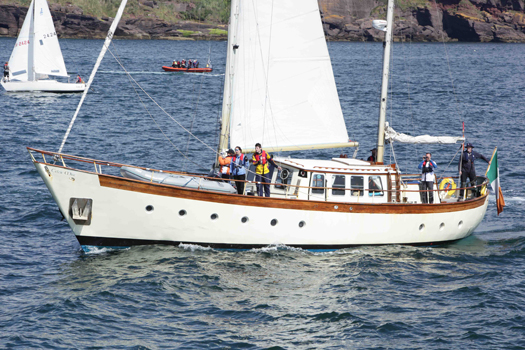
Ireland's only entry in the 2011 Tall Ships race from Waterford to Greenock Irish Whale and Dolphin Groups's research vessel Celtic Mist in the Tall Ships Parade of Sail off Dunmore East in Waterford. Photo: Shay Fennelly/Aquaphoto
The Tall Ships fleet was reviewed by Flag Officer Commanding Naval Service Commodore Mark Mellet and Sean Flood Sail Training Ireland (Board) and a Goodwill Ambassador for Sail Training International past the LE Aoife. Over 1200 young people, many who have never been to sea before, are onboard the 50 tall Ships sailing to Greenock.
On board Celtic Mist are Captain Fiacc Brolchain, Gary Davis, Eithne Griffith, Deirdre Slevin, Conor Ryan and trainees Siobhan Ardener (19) from Killarney, Co Kerry, and Keith Cleere (19) from New Ross, Co Wexford.
The race started slowly at 15.00hrs, five miles south of the Hook Lighthouse in 10 knots of wind and blue skies and headed for the Irish Sea to Scotland.
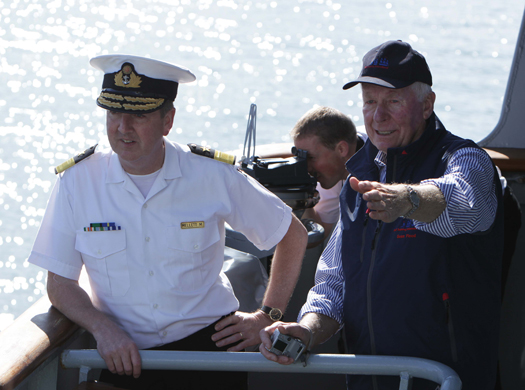
Flag Officer Commanding Naval Service, Commodore Mark Mellet (left) and Sean Flood Sail Training Ireland (Board) and a Goodwill Ambassador for Sail Training International on board LE Aoife reviewing the Tall Ships fleet as they passed off Dunmore East, County Waterford. Photo: Shay Fennelly/Aquaphoto


























